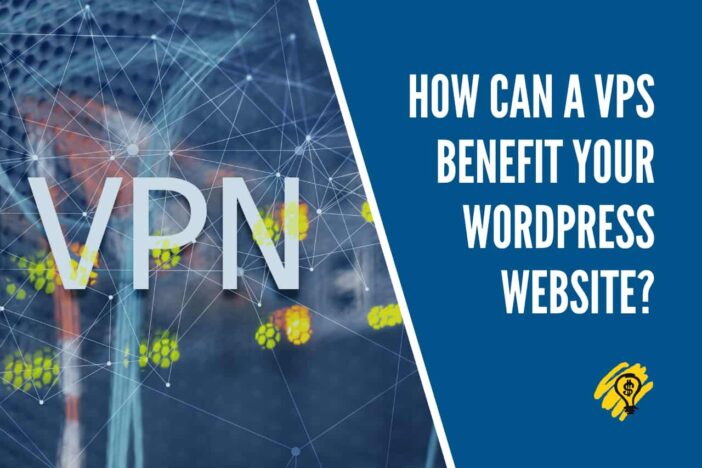WordPress is the undisputed king of the content management system (CMS) market. Most website owners, both novice and seasoned ones opt for this highly flexible and totally free system to power any kind of website they are looking to create. That’s an easy and straightforward choice for a CMS. However, the same can’t be said about picking a web hosting service for your site.
The first thing you have to determine when searching for a web host is the type of hosting you believe is the most suitable for your project. There are nowadays many fully managed WordPress hosting platforms that offer premium services aimed mainly at agencies and small businesses.
But if you have fair technical experience with installing and managing WordPress on your own, which isn’t really that complicated of a task, then you can save a lot of money by going with a regular web hosting service. In this case, you’ll be mostly looking at two options: Shared hosting or VPS hosting.
A virtual private server (VPS) is in different ways, the most efficient type of web hosting. The dedicated resources and the customizable software stack that come with VPS hosting can lead to noticeably improved performance and increased security, especially for high-traffic sites and those that use resource-heavy plugins.
Below we look at some of the most notable benefits that VPS hosting can provide for websites that are powered by WordPress.
Faster Processing and Loading
WordPress is notorious for being a resource-hungry system, and more so when used with complex plugins that require high processing power. A common example here is the WooCommerce plugin that enables you to run an e-commerce store on your WP site.
Now, if your website only gets a few dozens of visitors a day, it can do well with a decent shared hosting plan. But if you are dealing with hundreds (or more) of daily visitors, you’d be putting a lot of pressure on your server’s shared resources, which may lead to frequent incidents of slow loading and even downtime.
Having your own dedicated computing resources (CPU and RAM) results in faster and more efficient processing of requests, and this translates to faster loading of your site’s pages. Again, it depends on the complexity of your website and the number of visitors it handles on a daily basis, but generally speaking, you should expect a remarkable improvement in performance when you upgrade from a shared server to a virtual private server.
Easier Scaling
When daily traffic to your website grows, so does the demand for server resources in order to process the requests from all users in a timely and smooth manner. Each virtual server is allocated a certain number of CPU cores and a certain portion of RAM during its initial setup. Those aren’t cast in stone and can be changed on request later on.
When it comes to scaling your plan’s resources, no other type of web hosting can do it more efficiently, quickly and cost-effectively than a virtual private server. If you sign up with a VPS host that utilizes a cloud infrastructure, the scaling process should be instant and without downtime.
Some advanced cloud server platforms bill you by the hour so that you pay as you go and you only pay for the resources you are using rather than shelling out a fixed monthly fee for a fixed plan. This results in huge savings for websites that experience occasional or frequent spikes in traffic.
When your website is wielding the power of optimally scalable cloud computing, your users won’t have to put up with recurring periods of slow loading and technical errors due to excessive server load. You’d be able to instantly scale your resources to match your site’s varying traffic trends, and this means a seamless user experience even during the busiest times.
Better Security
There are different layers of security measures that could be implemented to secure a WordPress site. These range from server-level security tools to WordPress-specific configurations. Let’s just focus on the server side here and briefly touch on the major security advantages that a VPS brings to the table.
Complete system isolation:
Sharing the same server software with other websites can expose yours to countless security threats originating from the other sites. By having isolated and private (not shared) software running your server systems, the odds of getting infected by a virus or malware are significantly reduced.
No unnecessary software:
Another benefit of running your own server software is that you can install only what is necessary for your site. In a shared server, there could be several optional systems running on the server by default, which may not only be useless to you but may also bring additional security threats and exploitable vulnerabilities.
Security-optimized configurations:
The operating system, control panel, web server, and all software deployed on your VPS server is completely yours to configure and customize any way you wish. You can disable any functions and features your site doesn’t need but may pose security threats when they remain active.
Fewer IP-targeted attacks:
In a shared hosting server, hundreds to thousands of websites could be using the same IP address. So, if an attacker is targeting the IP address of one of those websites — e.g., with a DDoS attack — then all other websites sharing that same IP address would be affected. This is not something to be concerned about when using a VPS because you normally get your own dedicated IP address unless of course, someone is specifically targeting your website.
Custom security tools:
Lastly, having the ability to install any third-party security tool on your server is one of the top perks of VPS hosting. You can pick any comprehensive security solution on the market that is best tailored to your site’s needs.
Takeaway
For fairly large WordPress sites (or any other types of websites or apps), a virtual private server can offer a significant advantage in terms of performance, speed, and security — given that it is properly configured and optimized.
If you are in the process of choosing a web hosting service for a small business site or an e-commerce store, you should seriously consider deploying a cloud virtual server where you will have much more flexibility in scaling the resources down the road as your business expands.





